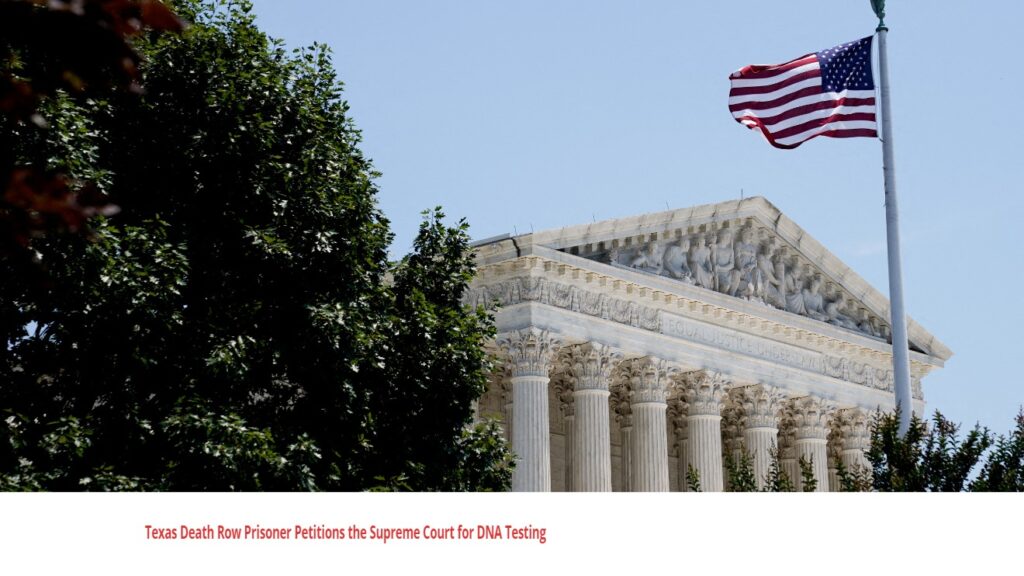On October 11, the Supreme Court heard oral arguments in the case of Texas death row convict Rodney Reed, whose claims of innocence have attracted the attention of Catholic leaders and celebrities.
Reed sued the state for violating his civil rights after they turned down his requests for DNA testing on evidence he thought would clear him. In this case, the justices were specifically looking at a matter of procedure.

Also read: A 17-Year-Old Caught With a Gun at North Texas HS Football Game
Reed, who is African American, was found guilty of the 1996 murder of Stacey Stites, a white woman, by a jury composed entirely of white people.
Reed’s Lawyers Report
He insists he is innocent and has explained that he was in a covert relationship with Stites all along. Reed’s lawyers and supporters say that new evidence found after Reed’s trial shows that Stites’ fiancee was involved in the murder.
State officials have so far declined to grant Reed’s request for DNA testing, citing concerns that testing might compromise the integrity of potentially useful evidence found at the crime scene due to poor storage conditions.
District Court in Texas
In 2014, a district court in Texas agreed, and three years later, the state’s Criminal Court of Appeals upheld that ruling.
Reed contended in U.S. District Court in Texas that the state’s legislation prohibiting DNA testing after a conviction was made was unconstitutional.
Also read: Russia Poses Cyber Threat to Texas Power Grid during War in Ukraine
The state responded by saying that the two-year time limit on his claims started when the state district court decided in 2014 not to analyse the DNA.
In oral arguments, the Solicitor General of Texas, Judd Stone, said that the state’s case gets weaker as time goes on because both physical evidence and the memories of key witnesses get worse.
The Justices Did Not Show Their Cards
The justices probed the issue of whether Reed’s case may be filed beyond the time set by the lower court in a variety of ways. It appeared like some folks got it, while others were dubious.
The Texas Court of Criminal Appeals has halted Reed’s execution, which was scheduled for November 2019, and remanded the case to a lower court for further consideration of new allegations.
After a hearing of evidence in 2021, a district judge decided that Reed didn’t have enough new evidence to get a second trial.
Reed’s case has been brought to the public’s attention for years by Sister Helen Prejean, a Sister of St. Joseph and an outspoken opponent of the death sentence.
Reed’s Execution
In 2019, Bishop Joe S. Vasquez of Austin, Texas, indicated that if Reed’s execution went through, “there is a tremendous chance the state of Texas would kill a guy who is innocent of this crime while permitting the guilty person to walk free.”
A stay of execution had been requested for Reed by the Texas Catholic Conference, which the bishop said at the time he had joined.
Referring to recent statements from other witnesses that point to Jimmy Fennell as the murderer, he said, “There are enough questions in this case that justice requires a thorough look at the new witness statements and other information.”
Reed’s Clemency Application
Reed’s clemency application was submitted to the Texas Board of Pardons and Paroles by the Innocence Project, a non-profit legal organisation dedicated to exonerating wrongfully convicted people through the use of DNA testing.
The application included a sworn affidavit from a witness who claimed that Fennell confessed to the murder of Stites while the two men were in prison together. A number of other witnesses have come forward with corroborated accounts.

